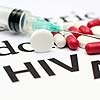
Most myths about HIV and Aids arise from a lack of accurate information. Here are some of the more common misconceptions.
Myth: I can get HIV from touching an infected person or being in the same room as them.
This is not true. Touching or hugging someone with HIV does not mean you will be infected with the virus. The virus is principally transmitted sexually through sexual intercourse and exchange of body fluids. People also think that by sharing cups, knives and forks etc. they can also be infected. This is also not true.
Myth: People with HIV all look the same.
This is not true. How can we tell if someone has HIV by just looking at them? Some people think that people with the virus look thin, but people come in all shapes and sizes anyway. The only way to tell whether someone has the virus is through an HIV test.
Myth: If I test HIV- positive then I have Aids.
This is not true. AIDS is a certain stage of the disease. People with HIV can live healthy and productive lives for many years before they develop the advanced disease (AIDS). HIV and AIDS are lumped together (often wrongly), which gives the impression that they are one and the same.
Myth: If I have sex with someone outside my relationship I will not get HIV.
This is not true. Being unfaithful has its risks. We always say that when you have sex outside a relationship it becomes like a ‘lottery’ – your chances of winning are always there, just as are your chances of catching HIV. Unless you know the status of your sexual partners and their sexual behaviour, you must always take precautions.
Myth: If I have sex with another HIV-positive person I will automatically be infected.
This is not true. When we have unprotected sex with an HIV positive person, you may or may not be infected by them. However, why take the risk?
Myth: If I use a condom then people will think I am HIV-positive
This is not true. The modern approach is to use a condom to protect yourself from infections you may get from your partner. You may not know their status or their sexual history, so there is nothing wrong with saying ‘let’s condomise to protect each other—until we know our status.
Myth: HIV will never affect me.
HIV affects everybody. There are certain cultural and economic groupings that think they can never be exposed to the virus. This is often incorrect and based on the assumption that they are better than others. This applies to communities where there are high levels of sexual taboo and an atmosphere of self-righteousness. Some of the biggest increases in HIV infection are being seen in these groups.
Myth: HIV is transmitted by the sperm, and means an infected man can produce an HIV positive baby.
This is not correct. HIV is found in the body fluids. The fluids which contain sperm is just one example of these body fluids. When a baby is conceived it is HIV negative in the womb, and is normally infected at birth when the mother goes into labour and the baby’s body fluids and the mother’s blood mix. If the mother has a sexually transmitted disease during pregnancy, then there is a risk, due to certain factors, that the baby may be infected in the womb.
Myth: Children should not be allowed to go to school if they are HIV- positive.
This is not true. Children who are HIV-positive should not be treated any differently to those who are HIV-negative. Their status is not a danger to anyone else and they are entitled to live normal lives. This is part of stigma to the disease.
(Dr Avron Urison, February 2012)
Dr Avron Urison is the Medical Director at AllLife Pty Ltd - providers of life insurance for HIV-positive individuals – www.alllife.co.za




 Publications
Publications
 Partners
Partners














